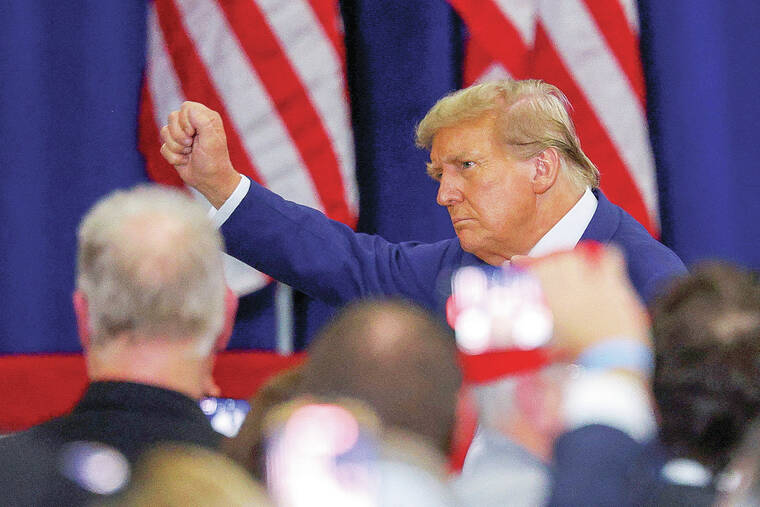Trump documents trial start delayed indefinitely, judge orders
The federal judge overseeing former President Donald Trump’s classified documents case formally scrapped her own May 20 start date for the trial Tuesday but declined to set a new one, saying there was much more work to be done before a jury could hear the charges.
The decision by Judge Aileen Cannon to delay the start of the trial was more or less a foregone conclusion given the number of legal issues that remain unresolved less than two weeks from the date she had originally set.
ADVERTISING
In a brief order, Cannon wrote that picking a new date at this point would be “imprudent and inconsistent with the court’s duty to fully and fairly consider” what she described as “the myriad and interconnected” pretrial issues that she had not yet gotten to.
Those included several of Trump’s pending motions to dismiss the case and a host of thorny questions surrounding how to decide what sorts of sensitive information can be revealed at the trial under a law known as the Classified Information Procedures Act.
Trump is charged in the case with mishandling and illegally holding onto classified material after leaving the White House and with obstructing the government’s repeated efforts to retrieve it from him. Prosecutors have indicated that some of the material he was found to have kept included information about military plans and U.S. nuclear capabilities.
Cannon first signaled that she was inclined to make some “reasonable adjustments” to the timing of the trial as far back as November. Then in March, she held a hearing in Federal District Court in Fort Pierce, Florida, specifically to discuss the trial calendar.
Even though Trump’s lawyers told her on the eve of that hearing that they could be ready to go to trial in August if necessary, Cannon made no further decisions about scheduling matters until her order issued Tuesday.
As part of her order on Tuesday, Cannon, who was placed on the bench by Trump in his waning days in office, laid out a series of hearings and filing deadlines that reached into late July. The calendar she set made it all but impossible that the case could go in front of a jury even by August, the time frame to which Trump’s lawyers had already agreed.
© 2024 The New York Times Company





